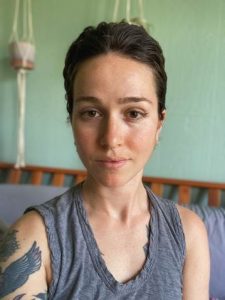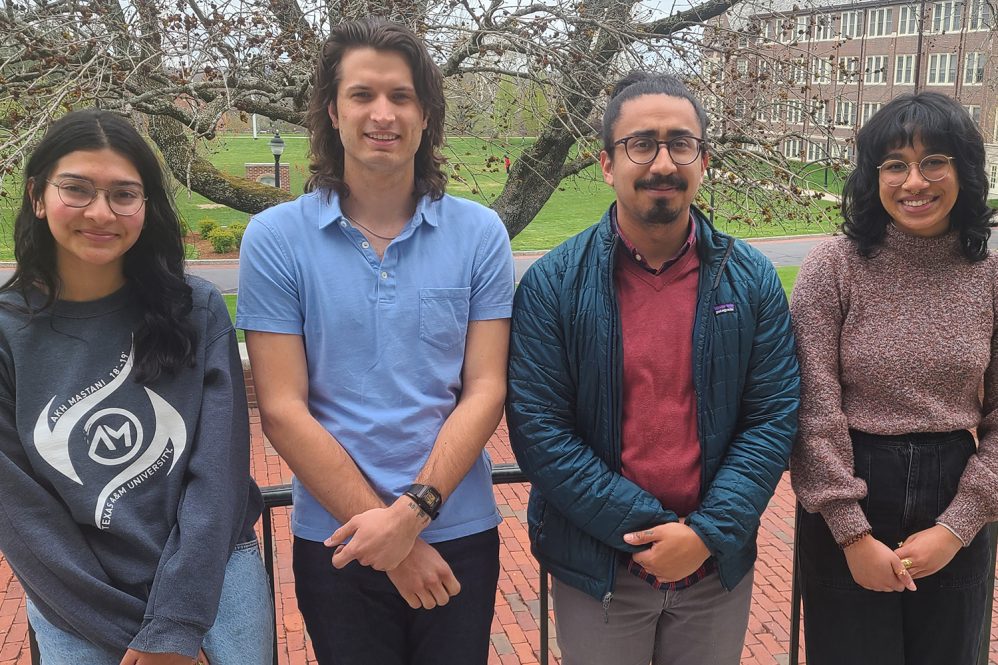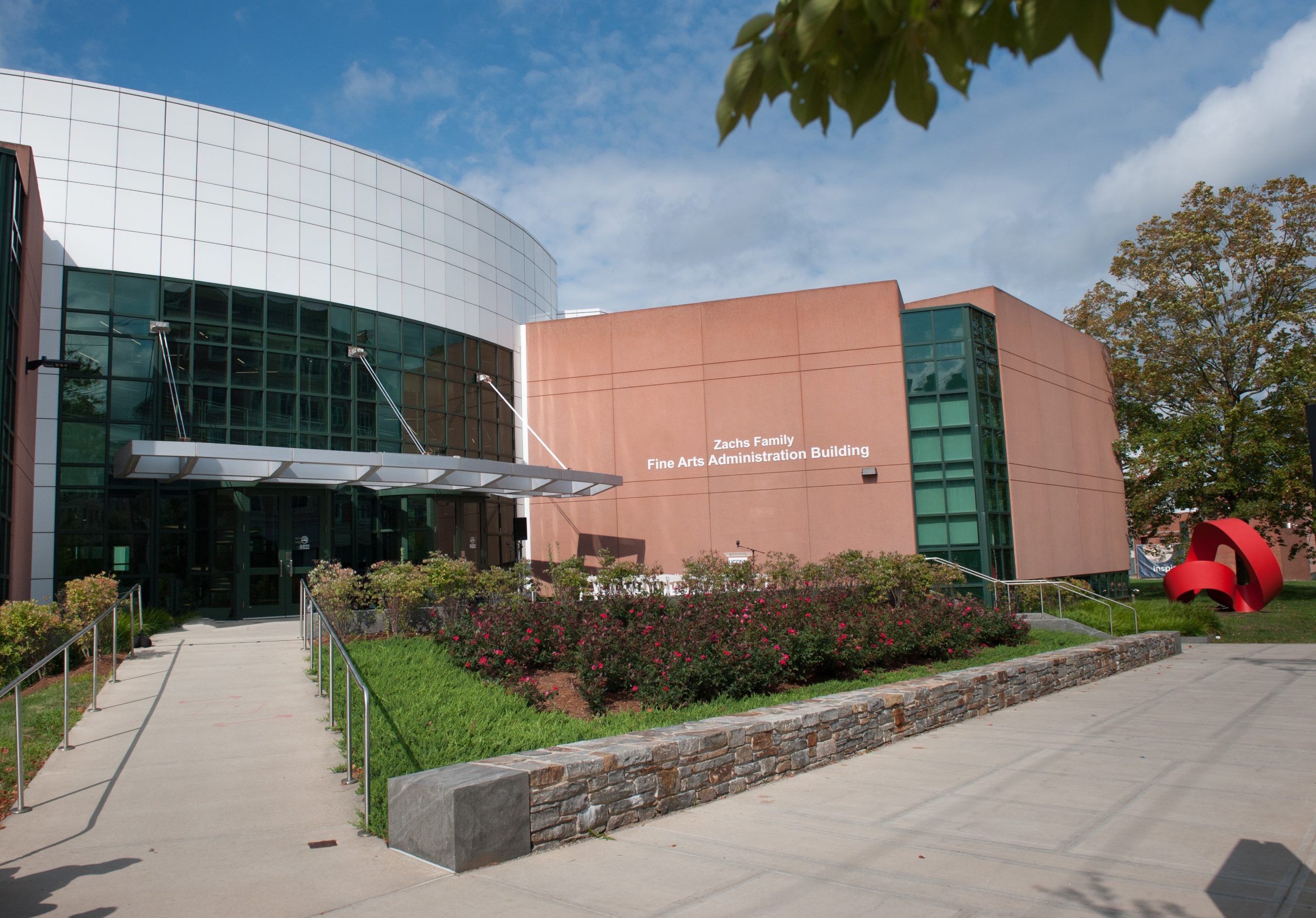Five UConn graduate students and an alumnus have earned National Science Foundation Graduate Research Fellowships (NSF-GRFP).
The oldest graduate fellowship of its kind, the NSF-GRFP recognizes and supports outstanding students in NSF-supported disciplines who are pursuing research-based master’s and doctoral degrees at accredited institutions in the United States. In addition to a three-year annual stipend of $34,000, plus another $12,000 paid to the student’s home institution, fellows have access to a wide range of professional development opportunities over the course of their graduate careers.
The Graduate Research Fellowships are highly competitive, with annual acceptance rates of about 16% from among more than 12,000 applicants.
“The NSF-GRFP is the oldest and arguably most prestigious award of its type,” says Vin Moscardelli, Director of UConn’s Office of National Scholarships and Fellowships. “These results are a testament to the hard work and commitment of UConn’s outstanding students and faculty, and this recognition confirms the importance of the amazing work UConn undergraduates, graduate students, and alumni are doing.”
“This year it is particularly wonderful to see so many of UConn’s graduate students selected for this prestigious and increasingly competitive award,” says Rowena Grainger, the STEM Fellowships Advisor in the Office of National Scholarships and Fellowships. “In applying for the NSF GRFP, students spend a significant amount of time clarifying their educational, professional and research goals along with managing the critical application feedback process. No matter the outcome, these are skills that students continue to build on in their graduate careers and beyond.”
The five graduate student recipients are:
Tony Edgington is a first year graduate student in the geosciences department, who is working in the Basin Analysis and Helium Thermochronology Laboratory of assistant professor Julie Fosdick. He received his undergraduate degree in geosystems engineering and geological sciences from the University of Texas.
At UConn, Edgington is studying Paleozoic basin records in the Sierras Pampeanas region of north-central Argentina. He is using mineral-dating techniques to better understand weathering and erosion patterns of orogenic systems and subsequent development of sedimentary basins.
Edgington was first introduced to geologic research as an undergraduate as he assisted in field work for two campaigns in the Patagonian region of Argentina. He completed a thesis project on sedimentary basin records and evidence for a changing tectonic regime of the southern Central Andes during the Cretaceous.
Edgington has plans to pursue a doctorate and aspires to a career in higher education, academia, and/or research, incorporating mentorship and other efforts to broaden participation in STEM, particularly for the LGBTQIA+ community.
“Being awarded this fellowship means more than I can attempt to express here,” says Edgington. “I scrapped my near-complete 2021 application due to the pressures of COVID-19 and finishing my undergraduate education. I continuously worked on my 2022 application over the last year, putting in countless hours. It feels like a momentous culmination of my academic career thus far and a new launching pad for the remainder of my schooling.”
Raul Flamenco is a second-year doctoral student in Ecosystem Toxicology Laboratory in the Natural Resources and the Environment Department under assistant professor Jessica Brandt. In that laboratory, Flamenco is investigating the interaction between selenium and antioxidant vitamins in multiple fish generations to better understand how that relationship affects development.
His experience with research began at the Natural History Museum of Los Angeles County, where he studied marine invertebrate morphology. He earned his undergraduate degree in environmental biology from Cal Poly Pomona and performed a meta-analysis to investigate the spatial and temporal variation of contaminants in bird tissues globally.
During the summer of 2019, Flamenco analyzed pesticides in harbor seals samples from the Mystic Aquarium during an NSF Research Experience for Undergraduates at Chemical Oceanography Lab at UConn Avery Point under associate professor Penny Vlahos.
“It is incredibly validating to know that my personal story and research ideas are heard and received this level of recognition,” says Flamenco.
Urvi Kaul is a first-year graduate student in the Department of Anthropology and works in the modern and ancient DNA laboratories at UConn, mentored by associate professor Deborah Bolnick. She received her undergraduate degree in anthropology from Texas A&M.
She started her research as an undergraduate sophomore, working on cranio-facial variation in populations around the world. Kaul has participated in projects in and with human archaeological remains from India, Peru, and the United Arab Emirates.
Since coming to UConn, her projects have shifted to focusing on contemporary human population genetics and exploring the impact of politics on human population structures.
“Being awarded the GRFP is exciting, mostly because it gives me confidence in the frameworks and research projects that I’ve chosen,” says Kaul. “It’s really great to see that science is moving towards celebrating projects that center decolonial practices.

Elyse Schriber is a second-year materials science graduate student at UConn in the lab of
assistant professor of chemistry J. Nathan Hohman. She started working with him as an undergraduate research assistant in 2017, when Hohman was a staff scientist at the Molecular Foundry at Lawrence Berkeley National Lab before coming to UConn.
Schriber started working on method development for serial femtosecond chemical crystallography (SFCX) at an X-ray free electron laser (XFEL) facility in 2018. This is an X-ray crystallography technique that determines single crystal structures of materials from microcrystalline powders. She continues that work at UConn currently. The duo recently published their first paper on the method in Nature.
She plans to continue to work on different facets of the SFCX project in her graduate program, including studying ultrafast nonequilibrium excited state structural dynamics in materials.
“I started my undergraduate degree as a nontraditional student at the local community college and as a result, did not have a straightforward pathway into graduate school or academia,” says Schriber. “Being awarded the GRFP, especially with my background, makes me hopeful that more students with similar experiences can be empowered to believe that they can be successful, regardless of how they got their start.”
Swapna Subramanian is a second-year doctoral student in professor Daniel Bolnick’s lab in Department of Ecology and Evolutionary Biology. She received her undergraduate degree from the University of Pittsburgh.
At UConn, she explores whether gene-gene interactions can determine how predictable evolutionary change can be. Subramanian uses experimental evolution of yeast in the lab and studies yeast evolution in apple varieties and different orchards in Connecticut.
She began research on salamanders in high school and as an undergraduate she studied plant-herbivore interactions using duckweed and water-lily aphids in the lab and in the field.
She worked in the Carnegie Museum of Natural History’s Herpetology Department and was named a Goldwater Scholar in 2019.
Subramanian additionally studied identity formation in first-generation Indian immigrants and the role of online groups as safe spaces for minorities.
“I am incredibly humbled and grateful to be receiving this award,” says Subramanian. “This means that my research is not only interesting to me but interesting enough to the National Science Foundation for them to fund me to exclusively conduct my own research.”
In addition, Zachary Thatcher ’17 (ENG), who is a graduate student and research assistant at Columbia University, also received a NSF Graduate Research Fellowship.
The Office of National Scholarships & Fellowships (ONSF) is a resource for students interested in learning more about the NSF Graduate Research Fellowship and other prestigious scholarships and fellowships that support graduate study in all fields. ONSF is part of Enrichment Programs and is open to all graduate and undergraduate students at the University, including students at the regional campuses. For more information about STEM fellowships specifically, contact Rowena Grainger, Enrichment Programs Assistant Director for Research and Fellowships.



